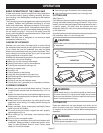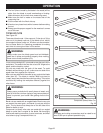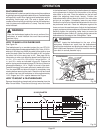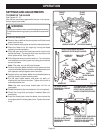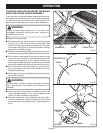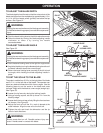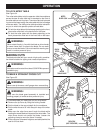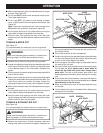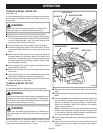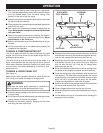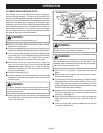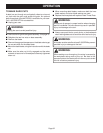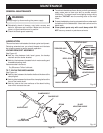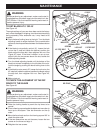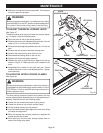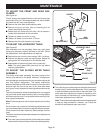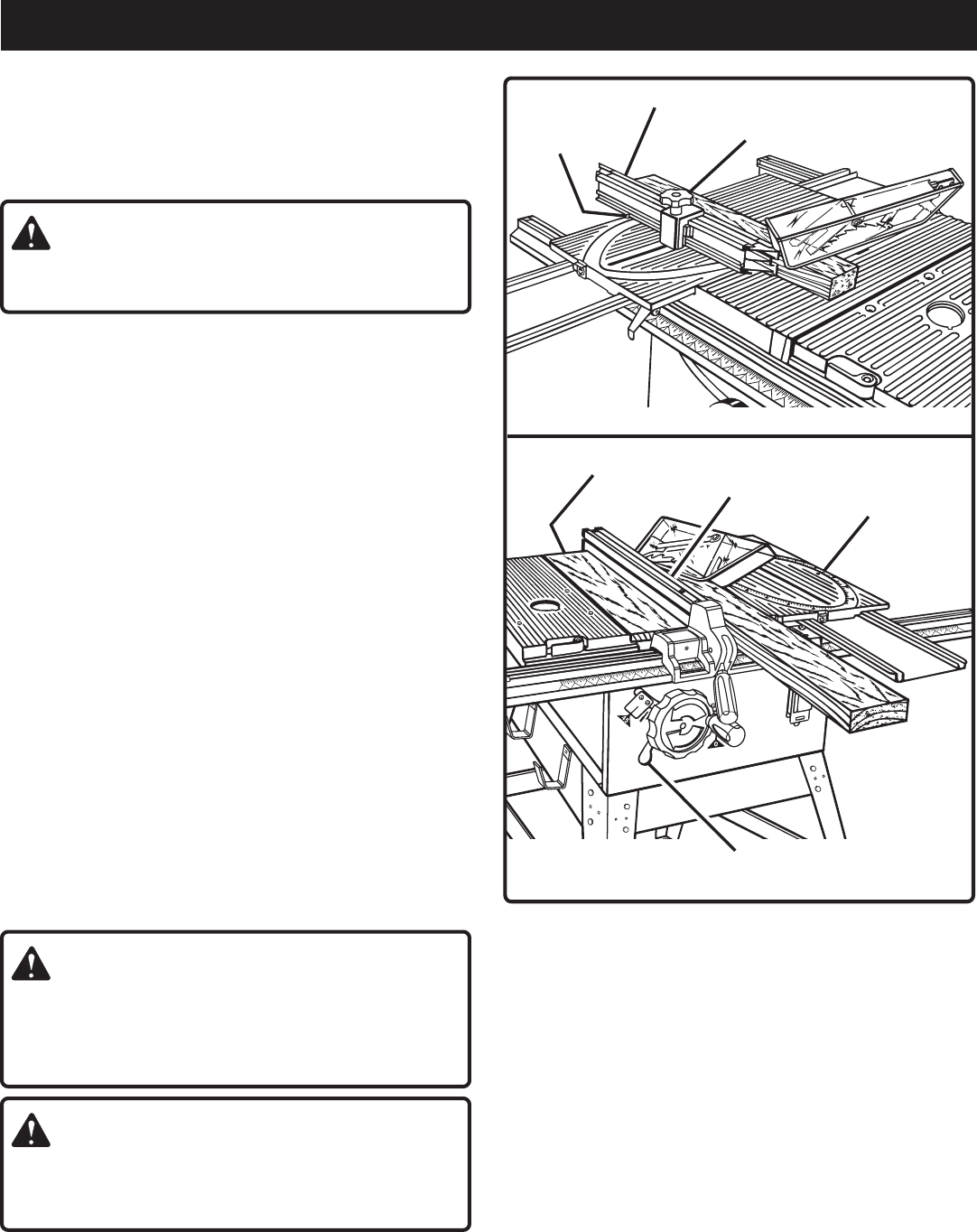
Page 29
OPERATION
■ Remove miter fence, sliding miter table, and accessory
table.
■ Replace accessory table on the left side of blade. Do not
lock.
■ Place the wooden insert between the accessory table and
the saw table to support the workpiece.
See Figure 40
.
Secure the wooden insert with screws as noted below.
Adjust the accessory table firmly against the wooden
insert and lock securely.
Note: The wooden insert should be attached with wood
screws from the bottom, through the two holes provided
in the casting. Securely trap the wooden insert between
the accessory table and the saw table.
■ Place sliding miter table on the right side of blade and lock
securely.
■ Attach the rip fence over the front and rear rails on the left
side and lock securely. Reset the scale to the blade if
needed.
TO MAKE A BEVEL CROSS CUT
See Figure 39.
It is recommended that you place the piece to be saved on
the left side of the blade and that you make a test cut on
scrap wood.
WARNING:
Make sure the blade guard assembly is installed and
working properly to avoid serious personal injury.
■ Remove the rip fence by lifting the locking handle.
■ Move the bevel locking lever to the right for Angle mode.
Turn the blade adjustment handle until the bevel indicator
is at the desired angle. Push the bevel locking lever
securely to the left to lock the angle.
■ Set the blade to the correct depth for the workpiece.
■ Loosen the adjusting clamp on the miter fence. Set the
miter fence to 90° with either the quick-stop or the miter
scale.
■ Make sure the miter fence will not contact the blade as
the wood feeds into the blade. Make a trial pass of the
miter table. The end of the miter fence should not contact
the blade. Loosen the adjusting clamp to move it away
from the blade if needed.
■ Place a support (the same height as saw table) behind
the saw for the cut work.
■ Make sure the wood is clear of the blade before turning
on the saw.
■ Let the blade build up to full speed before moving the
miter table to feed the workpiece into the blade.
■ Hold the work with both hands and push the miter table
to feed the work into the blade.
TO MAKE A BEVEL RIP CUT
See Figure 40.
It is recommended you make test cuts on scrap wood.
WARNING:
The rip fence must be on the left side of the blade to avoid
trapping the wood and causing kickback. Placement of
the rip fence to the right of the blade will result in kickback
and the risk of serious personal injury.
WARNING:
Make sure the blade guard assembly is installed and
working properly to reduce the risk of serious personal
injury.
Before making this cut, use scrap wood to make an insert
5 in. wide, 22 in. long, and 3/4 in. thick. You may want to
make others that are more than 5 in. wide.
Fig. 39
MITER FENCE
ADJUSTING CLAMP
Fig 40
RIP FENCE
MITER TABLE
WOODEN INSERT
BEVEL LOCKING LEVER
QUICK STOP



